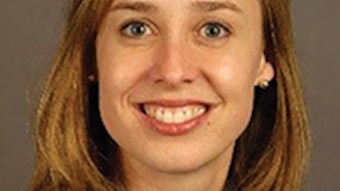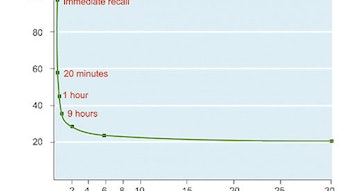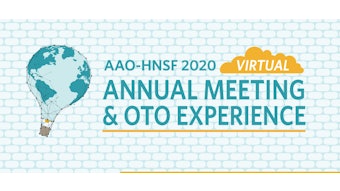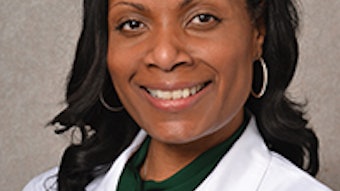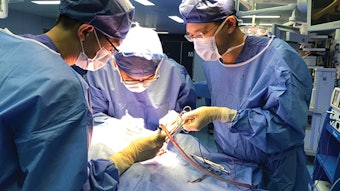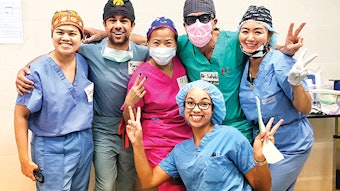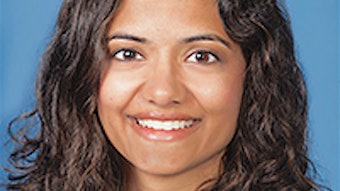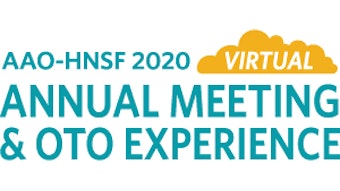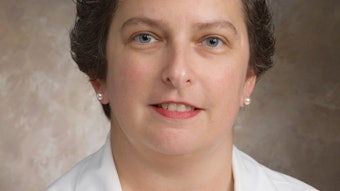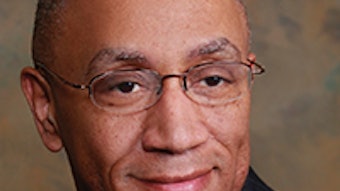Mentorship Matters: The Resident Reviewer Development Program
Some may think reviewing for medical journals is reserved only for physicians in clinical practice, researchers in academic medicine, or other seasoned healthcare professionals. “As a resident I thought peer review was restricted to faculty. The whole peer review process seemed like a mysterious black box,” says John D. Cramer, MD, assistant professor in the Department of Otolaryngology – Head and Neck Surgery at Wayne State University School of Medicine.

Some may think reviewing for medical journals is reserved only for physicians in clinical practice, researchers in academic medicine, or other seasoned healthcare professionals. “As a resident I thought peer review was restricted to faculty. The whole peer review process seemed like a mysterious black box,” says John D. Cramer, MD, assistant professor in the Department of Otolaryngology – Head and Neck Surgery at Wayne State University School of Medicine. During his residency, however, Dr. Cramer saw a new opportunity and participated in Otolaryngology–Head and Neck Surgery’s Resident Reviewer Development Program (RRDP). He recalls, “Getting involved in the peer review process provided insight into that black box.” Dr. Cramer completed the program with its first graduating class in 2017 and is now a mentor to residents currently in the program.
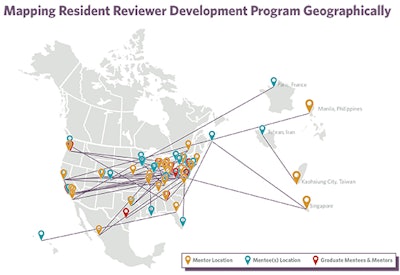
The RRDP pairs qualified residents with mentors who are peer reviewers. Participants gain the skills and insight necessary to comprehensively review scientific articles by completing reviews under the mentors’ guidance. “The Resident Reviewer Development Program has been outstanding,” says Thomas S. Edwards, MD, a 2020 program graduate, who is a PGY-4 at Emory University. For many residents who participate, the mentor-mentee relationship becomes quite meaningful. “My mentor, Dr. Ahmad Sedaghat, was incredibly dedicated to the program and my development,” Dr. Edwards explains. “I was lucky to be paired with him.”
Mentors also benefit from this relationship. According to Dr. Cramer, mentoring affords him the “opportunity to build connections with young otolaryngologists.” He also appreciates how the relationship enhances his skills. “Mentees spend an enormous amount of time on reviews and come up with valid critique . . . Mentoring forces me to think about my own reviews and makes me a better reviewer.”
To be considered for the 2021 class, applications should be submitted by January 11, 2021.
Requirements
Applicants must:
- Be PGY-3 or PGY-4
- Obtain a letter of recommendation from their department chair
- Submit a completed application
- Read and watch the Reviewer Development Resources training material
- Have professional working proficiency or full professional proficiency in English
To learn more, please visit the Resident Reviewer Development Program page on our website at https://www.entnet.org/content/resident-reviewer-development-program.
If you are an experienced peer reviewer and are interested in serving as a mentor for the program, please contact the journal office at RRDP@entnet.org. We also welcome communication from residency program directors regarding interest in the program.
The RRDP launched as a pilot program in 2016. John H. Krouse, MD, PhD, MBA, the journal’s Editor-in-Chief, and Cecelia E. Schmalbach, MD, the Deputy Editor at the time, recognized and responded to an interest in peer review from residents and the constant need for quality peer reviewers. With the continued support of Dr. Krouse and the current Deputy Editor, Jennifer J. Shin, MD, SM, the program has remained strong ever since.
Molly E. Heft Neal, MD, another 2020 RRDP graduate and a PGY-4 at the University of Michigan, understands the broader reach of the program. “This program provides the training to allow residents to participate in peer review at a national level.” Dr. Heft Neal also notes the value of the program’s rigor: “The most challenging aspect was learning how to concisely review in a way that was both informative for the editor and constructive for the authors.” But beyond that, she says, “The RRDP taught me additional ways to review and think critically about my own research.” Dr. Edwards concurs, “Not only do I feel well equipped to critically review journal articles, but I look at my own research questions and manuscripts through a new lens.”
Residents typically complete three to six mentored reviews before their mentors recommend them for an independent review. After successful completion of the independent review, participants graduate from the program and join the reviewer pool for Otolaryngology–Head and Neck Surgery. Excelling as a peer reviewer is often the first step toward becoming a star reviewer, editorial board member, or associate editor.
Being able to work with journal manuscripts while learning the peer review process is what drew Sara Rahavi-Ezabadi, MD, MPH, to apply. “This is an outstanding, well-known journal,” explains the PGY-4 resident from Tehran University of Medical Sciences. As one of several international residents participating, she understands the myriad benefits the program offers. “Learning the peer review process will help me choose more reliable, valid publications to read for improving my own knowledge,” she says. She also welcomes the opportunity to think through and comment on “the potential flaws” that some studies present.
As someone who has experienced the RRDP as both mentee and mentor, Dr. Cramer has unique insight into program benefits. “Putting on a reviewer hat from time to time makes you a better academic writer and researcher. It also forces you to pause and do a deep dive on a paper. I learn new things from each paper I review.” He also understands how the experience aided in his career path. “Getting involved in peer review made me familiar with the literature, and the peer review process helped me transition from fellowship to academics.”
As the program heads into its fifth year of welcoming new resident reviewers, its mentors and mentees have done an exemplary job of navigating the extraordinary conditions brought on by COVID-19. Mentors and mentees have continued tenaciously in the midst of the pandemic, and Dr. Shin worked to be increasingly inclusive of additional applicants as other clinical education opportunities were curtailed for residents. “While 2020 has brought much change and uncertainty, one thing that has neither changed nor wavered has been our enthusiasm to mentor our residents through this program,” says Dr. Shin. “We’ve been fortunate to have talented residents and stellar mentors, many of whom have gone above and beyond amidst the many added demands of COVID.”
The editors of Otolaryngology-Head and Neck Surgery invite residents to apply to enroll in the journal’s Resident Reviewer Development Program, which has continued to exceed expectations.

